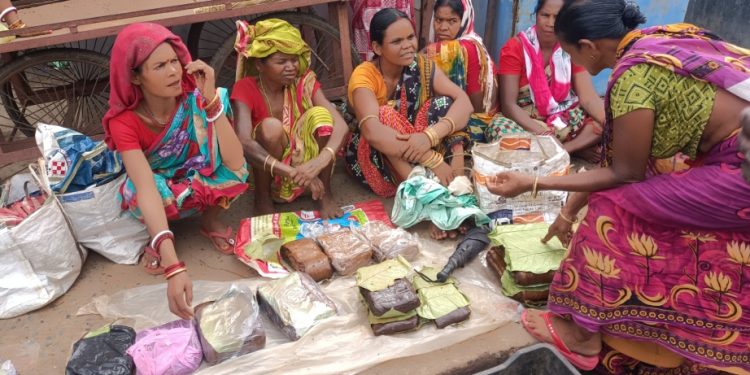Keonjhar: After mangoes, the distress sale of mango pulp, locally known as ‘Amba Sadha’, has left tribals in Keonjhar district worried. The situation has arisen due to the absence of proper market facilities and support. Mango pulp is the concentrated mango juice obtained after processing various local varieties of mangoes. The processed mango pulp has enhanced shelf life and significant export potential. It can further be used to produce various other products such as mango jelly. Mango pulp prepared by tribals of Keonjhar district is in high demand not only in the state but also outside.
According to sources, thousands of tribal families eke out their livelihood from this business every year. However, due to a lack of promotion and proper market facilities, they are unable to sell the product at the right price. The number of mango trees in forest and village areas of Keonjhar district has been declining due to massive deforestation. On the other hand, the introduction of hybrid varieties of mango trees has severely affected the mango pulp production in the district as it is mostly prepared from local varieties of mangoes. During the summer season, tribal families collect ripe mangoes from the forest and rural orchards. After extracting the juice, they spread it properly over a mat and leave it under the direct sun to dry. Layer after layers of mango juice is poured over it and dried gradually. It takes about a fortnight to prepare mango pulp. Then they cut the whole piece into a proper size for sale in the local market. Many a time unseasonal rains severely affect the mango pulp production. “A piece of mango pulp of about 5-6 feet length and one-foot width costs about Rs 100-120. But we have to sell it to traders at low prices, as there is no proper market facility,” said Sunita Naik, a tribal woman.
Every year several quintals of mango pulp are exported from this district to other districts and outside state. “If the government promotes this business in Keonjhar and gives it the much-needed support, it will be a big help for thousands of tribal families and prove to be an alternative source of earning for them. Its demand will rise further if it is sold after being properly processed through engaging different women groups,” said Pranav Raoutray, a social activist.







































